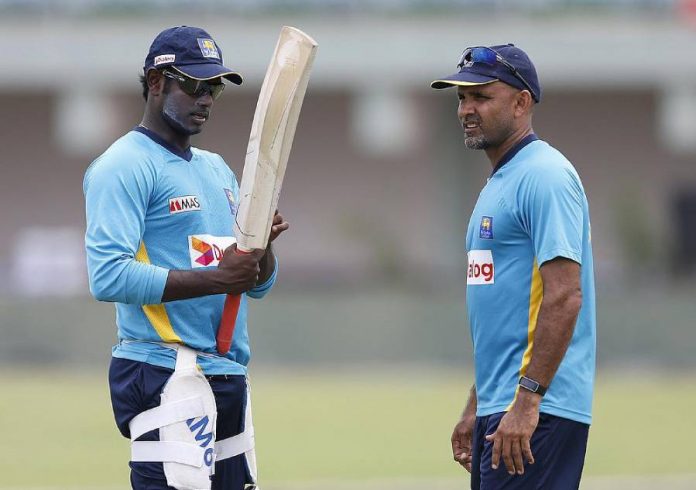In all these years, Australia have had just one foreign coach handling their cricket team and that association too didn’t last long.
The fallout from homework gate was so huge that Cricket Australia terminated Mickey Arthur’s contract halfway through an Ashes campaign. Arthur’s methods were said to not fit the culture of the Australian team. The Aussies are unlikely to have a foreign coach for a considerable amount of time given the magnitude of the Arthur fall out. Strangely, Arthur is now an Australian citizen having migrated to Perth from his native South Africa.
Read More : Dav Whatmore and the glory days
Occasionally, we Sri Lankans too debate about the fact whether we are better off with a foreigner as Head Coach or if locals can do the job.
After the unceremonious sacking of Chandika Hathurusingha, to hire whose services SLC left no stone unturned, the board is unlikely to opt for a local coach anytime soon. However, some of the finest moments of our cricket history have come during the tenure of local coaches.
One of the national cricket team’s most successful tours was to England in 1998. Sri Lanka won their maiden Test match on English soil and won the tri-nation Emirates Cup also involving South Africa apart from the hosts. Roy Dias was coach of the side at that point.
Then 16 years later, when the team recorded their first ever series win in England, Marvan Atapattu, another fine technician when it came to batting, was Head Coach after Paul Farbrace had left the side high and dry just a fortnight before the tour.
Much before them several other former players turned coaches guided the fortunes of the national cricket team. Amongst all coaches Abu Fuard had the longest stint. It was during our formative stages of Test cricket. Fuard never took no for an answer and taught those who didn’t comply harsh lessons.
The story of a wicketkeeper batsman who was a compulsive hooker comes to mind. With the hook shot being his Achilles’ heel, Fuard had told him to stop playing the stroke but our man gave in to his inclinations. He was dropped halfway through the tour of Pakistan and didn’t get a game in Sri Lankan colours for the next three years, as long as Fuard was running the show. If you were wondering why a 19-year-old Asanka Gurusinha made his debut as a wicketkeeper in Pakistan, that’s because Fuard had run out of patience with his regular keeper.
Duleep Mendis was another straight talking coach with a no-nonsense approach. As a captain he guided the team to our maiden Test wins over India and Pakistan and as Coach, he guided Sri Lanka to their first wins over England and New Zealand.
Former senior DIG T.B. Khelgamuwa had several stints as Chairman of Selectors but what will be most remembered is his tenure as coach of the side. It was under Khelgamuwa the team recorded their first Test win overseas in 1995.
So there’s no denying of the fact that the locals possess the ability, knowledge and professionalism to handle a cricket team. Hathurusingha had proven it with Bangladesh and presently Naveed Nawaz is doing the same with their Under-19 side. Former quick Janaka Gamage has helped Thailand’s women’s team make tremendous progress while Duleep Mendis is doing wonders with Oman.
Sri Lankans all over the world have proved themselves. So then why would you opt for a foreign coach some may ask? India have chosen a structure where they encourage home grown talent. Ravi Shastri gets a chance to pick his support staff and apart from physiotherapy, an area where Asian teams might still need British or Australian help, the other key aspects can be handled by locals. India are thinking far ahead too by giving Rahul Dravid the feeders to the senior team and when Ravi steps down, the transition will be automatic.
Not just those who have played the game at the highest level but those coaches who have had success in domestic cricket too are good enough to handle international teams. The likes of Graham Ford and John Buchanan are prime examples for that. On the other hand, not all legends of the game have gone onto become great coaches. Kapil Dev and Sir Viv Richards are cases in point.
More than playing the game at the highest level or experience, success in coaching at the highest level is about how cleverly you are able to manage the side. Players at the elite level require little coaching so things like how you manage their workload and how you bring the best out of them becomes vital. The likes of Tom Moody and even Duleep Mendis were extremely good at doing this. That is one reason that they had huge success as cricket coaches.
One disadvantage that local coaches experience is that there are far more interferences from outside than when a foreigner is at the helm. A local on the other hand will have to put up with influences from friends, mentors, schools, clubs, officials and what not. Others might argue that the language barrier is an issue for foreign coaches with most of the young talent coming from backgrounds where English is not spoken much.
Like in every aspect of life, both sides have advantages and disadvantages. But one thing that needs to end is underrating home grown talent.




















